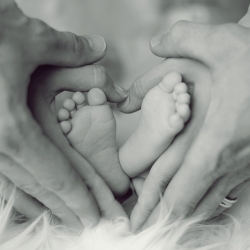To provide the best experiences, we use technologies like cookies to store and/or access device information. Consenting to these technologies will allow us to process data such as browsing behaviour or unique IDs on this site. Not consenting or withdrawing consent, may adversely affect certain features and functions.
The technical storage or access is strictly necessary for the legitimate purpose of enabling the use of a specific service explicitly requested by the subscriber or user, or for the sole purpose of carrying out the transmission of a communication over an electronic communications network.
The technical storage or access is necessary for the legitimate purpose of storing preferences that are not requested by the subscriber or user.
The technical storage or access that is used exclusively for statistical purposes.
The technical storage or access that is used exclusively for anonymous statistical purposes. Without a subpoena, voluntary compliance on the part of your Internet Service Provider, or additional records from a third party, information stored or retrieved for this purpose alone cannot usually be used to identify you.
The technical storage or access is required to create user profiles to send advertising, or to track the user on a website or across several websites for similar marketing purposes.
 Earlier this month, in a sudden and unexpected turn of events, the prime minister’s chief adviser, Dominic Cummings, walked out of 10 Downing Street for the last time, having resigned/been asked to leave, depending on whose account of the episode you believe. However, the affair unfolded in reality, it seems clear that the departure of Cummings and Director of Communications, Lee Cain, was precipitated by workplace conflict and a series of internal disagreements, which had pushed their relationships with certain colleagues to breaking point. (more…)
Earlier this month, in a sudden and unexpected turn of events, the prime minister’s chief adviser, Dominic Cummings, walked out of 10 Downing Street for the last time, having resigned/been asked to leave, depending on whose account of the episode you believe. However, the affair unfolded in reality, it seems clear that the departure of Cummings and Director of Communications, Lee Cain, was precipitated by workplace conflict and a series of internal disagreements, which had pushed their relationships with certain colleagues to breaking point. (more…)








 Women taking maternity leave collectively lose out on £3.2bn worth on earnings, a fall of nearly half their average annual salary, claims new research from
Women taking maternity leave collectively lose out on £3.2bn worth on earnings, a fall of nearly half their average annual salary, claims new research from 
 Despite the last-minute extension of the furlough scheme, new research conducted among UK business leaders claims that great concern remains around making redundancies and in particular the legal risk. The survey of over 440 UK business leaders, conducted by employment law and HR support firm
Despite the last-minute extension of the furlough scheme, new research conducted among UK business leaders claims that great concern remains around making redundancies and in particular the legal risk. The survey of over 440 UK business leaders, conducted by employment law and HR support firm 
 A new report from the
A new report from the 












 UK workers are most likely to log a claim against their employer for making them work excessively long hours, claims new data by health and safety training provider
UK workers are most likely to log a claim against their employer for making them work excessively long hours, claims new data by health and safety training provider 








December 10, 2020
Employers should explain their monitoring policies to workers
by Chioma Iwunze • Comment, Workplace